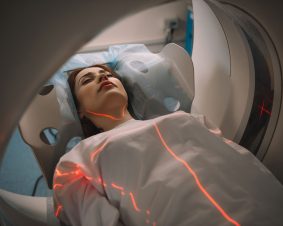 >
Spotlight September: A methodology for the automatic evaluation of data quality and completeness of nanomaterials for risk assessment purposes
>
Spotlight September: A methodology for the automatic evaluation of data quality and completeness of nanomaterials for risk assessment purposes
This paper describes a method for automatically assessing the quality and completeness of nanosafety data for the purpose of risk assessment. Steps to develop the methodology for assessing data completeness and the methodology for assessing quality are presented. The methodology is tailored to physicochemical and hazard (meta) data, but can also be configured with appropriate criteria to support modeling or exposure assessment. It is based on assessing the quality and completeness of the data contained in the eNanoMapper database using the harmonized data reporting templates introduced in the NANoREG project and further developed in the GRACIOUS project. Combined with expert knowledge, this methodology can be used as a powerful data analysis tool in different contexts. To enable the practical application of the proposed methodology, it has been implemented as an online R-tool (https://shinyapps.greendecision.eu/app/gracious-data-quality) that can be connected to both databases and risk assessment software tools.
Original publication:
Gianpietro Basei, Hubert Rauscher, Nina Jeliazkova & Danail Hristozov (2022). A methodology for the automatic evaluation of data quality and completeness of nanomaterials for risk assessment purposes. Nanotoxicology, 16:2, 195-216, DOI: 10.1080/17435390.2022.2065222

Weitere Spotlights
Spotlight August 2021: Towards FAIR nanosafety data
In August we would like to present a paper on FAIR data. The paper published in Nature Nanotechnology in June 2021 summarises the challenges and provides recommendations for the efficient reuse of nanosafety data in line with the recently established FAIR guiding principles: findable, accessible, interoperable and reusable. This article summarises the know-how on the […]
Read moreSpotlight December 2022: Fighting tumors with micro robots
When we, the DaNa team as operators of the website nanopartikel.info, write about nanobots, i.e. nanometre-sized machines, we point out that these machines belong to science fiction, may even remain a utopia – i.e. never realisable. On the significantly larger micro-scale, however, small machines are conceivable that could help in the therapy of diseases, e.g. […]
Read moreSpotlight May 2022: Nano-ghosts” – Risk assessment of submicron-sized particles in food biased towards fictional “nano”
The European Commission has issued a ban on the colorant titanium dioxide in food. Titanium dioxide, which provides a nice shine and bright white color, can potentially damage genetic material. We chose a review article from 2022 for the May 2022 Spotlight that addresses the risk assessment of food-grade titanium dioxide (E171) and the resulting […]
Read moreSpotlight May 2021: Towards safe and sustainable innovation in nanotechnology: State-of-play for smart nanomaterials
The European Commission’s new Action Plan for a Circular Economy Green Deal, the new European Industrial Strategy as well as the Chemicals Strategy for Sustainability presented in October 2020 are ambitious plans to achieve a sustainable, fair and inclusive economy in the European Union. These strategies require that any new material or product must not […]
Read more


